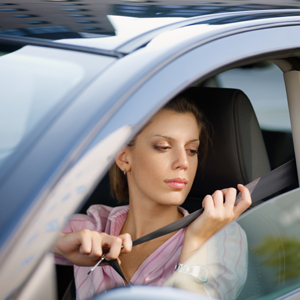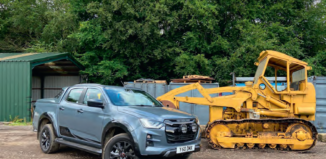 Although the UK’s our roads are amongst the safest in the world, an average six or seven people still die in road accidents each day in the UK, and road accidents are a leading cause of death amongst teenagers and young people.
Although the UK’s our roads are amongst the safest in the world, an average six or seven people still die in road accidents each day in the UK, and road accidents are a leading cause of death amongst teenagers and young people.
And with the launch of the United Nations’ Decade of Action campaign in the UK this month, there is going to be a continued focus on road safety. This aims to reduce deaths and injuries on the world’s roads over the next ten years, and to educate people to drive more safely, as the majority of accidents are a result of driver error.
Here are some timely reminders to help protect yourself, your passengers and other road-users.
- Stay awake – Fatigue is a major killer, with around 20% of accidents on major roads down to sleepiness. The most risky times for nodding off at the wheel are after lunch and in the early hours of the morning; if you feel your eyes getting heavy, pull off the road – where it is safe to do so – and take a cat-nap.
- Belt up – Not wearing a seatbelt means you’re twice as likely to die in a crash. Official estimates suggest that hundreds of lives could be saved each year in the UK if everyone wore their seatbelt.
- Stay sober – Even small amounts of alcohol can impair your judgement – and the same goes for drugs, illegal or otherwise. Be aware of possible side-effects, such as drowsiness, of any prescription medicine you take.
- Don’t speed – Limits are there for a reason. A pedestrian is around four times more likely to die if hit by a car travelling at 40mph than if the car was doing 30mph, for example. Even the legal limit may be far too fast in wet weather or when visibility is poor, so it makes sense to always exercise judgement.
- Don’t be distracted – You can’t give the road your full attention if you’re thinking too hard about other things – getting too caught up in a radio talkshow, eating or drinking, selecting songs on your music player, arguing with your passengers – or worse, illegally talking or texting on your phone.
- Know your stuff – Make sure you’re familiar with all of your car’s controls and functions, so you’re not fumbling for a switch or lever at a crucial moment. And it’s always worth refreshing your knowledge of the Highway Code.
- Keep your distance – The further you are from the car in front, the more time you have to react in an emergency, so resist the temptation to tailgate.
- Mirror, signal, manoeuvre – Keep aware – danger can come from any angle. Signal your intentions clearly, and be aware of other road-users who may not be as alert, before you move.
- Look after your car – Worn tyres and brakes, or ropey suspension and steering, will seriously affect your ability to stop quickly and steer safely in an emergency situation. Avoiding harsh acceleration and braking should not only help you drive more safely, it can also reduce your fuel costs – another incentive!
- Look after yourself – Make sure your eyesight is up to scratch, or that you wear the correct glasses or lenses to drive. Also wearing inappropriate footwear like flip flops, or no footwear at all, can really impair your ability whilst on the road.
As well as helping to ensure your safety – and that of other road-users – being a better driver can potentially also reduce your car insurance policy premium. The fewer accidents you have, the lower-risk you are to insurers, and the lower your next car insurance quote may be.


